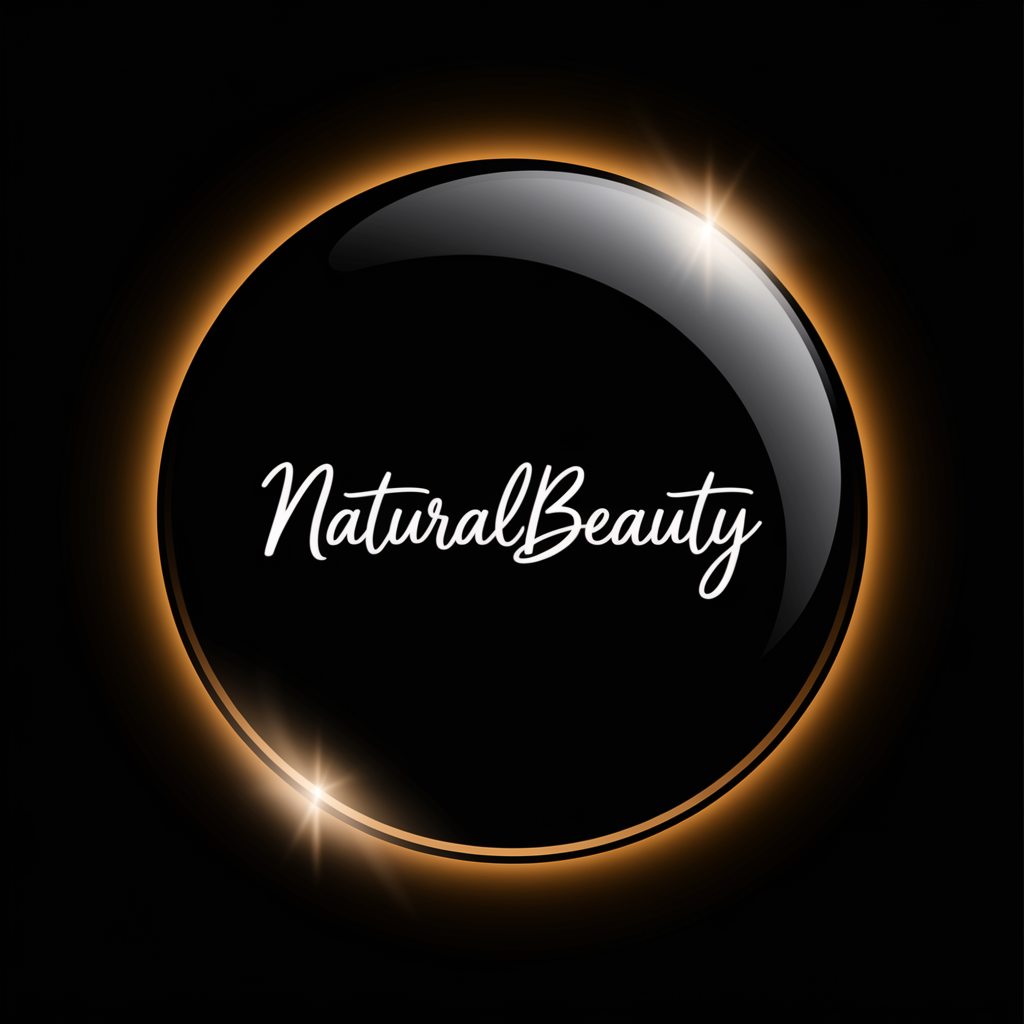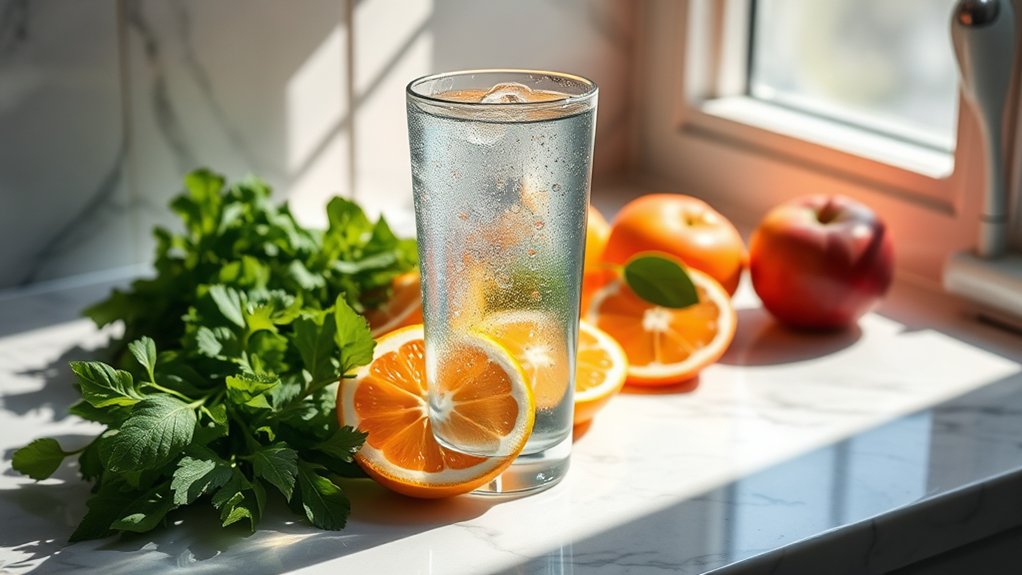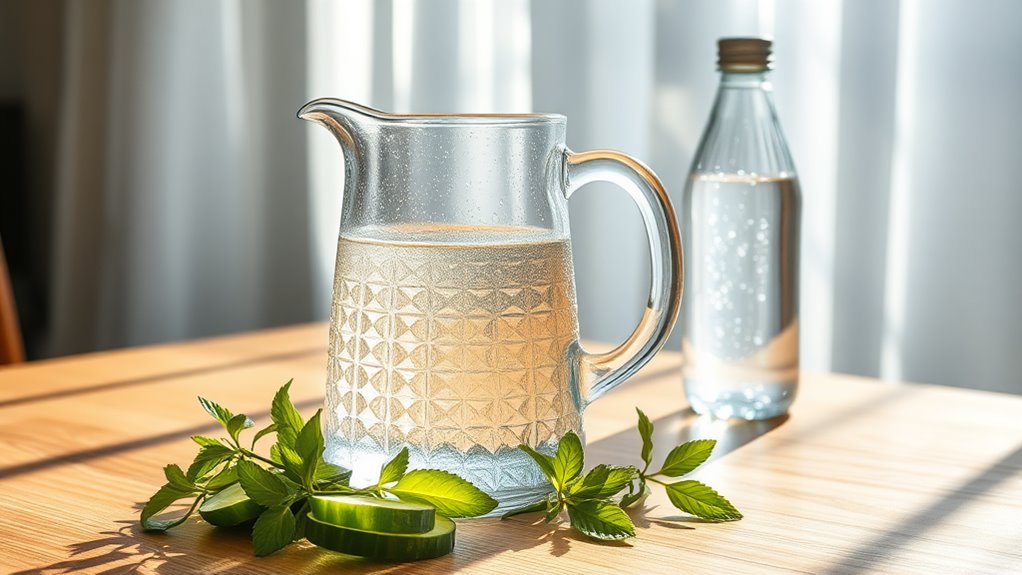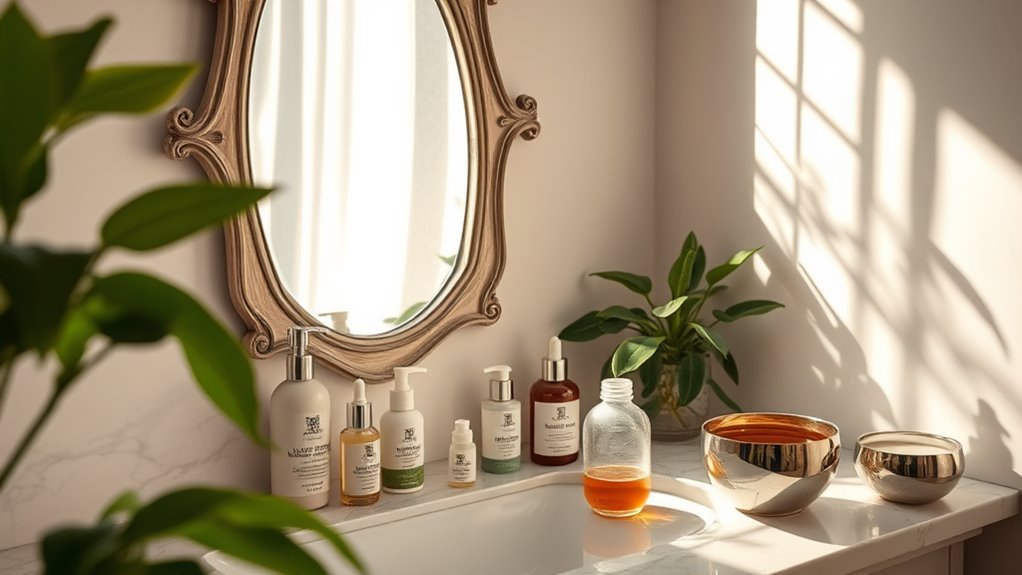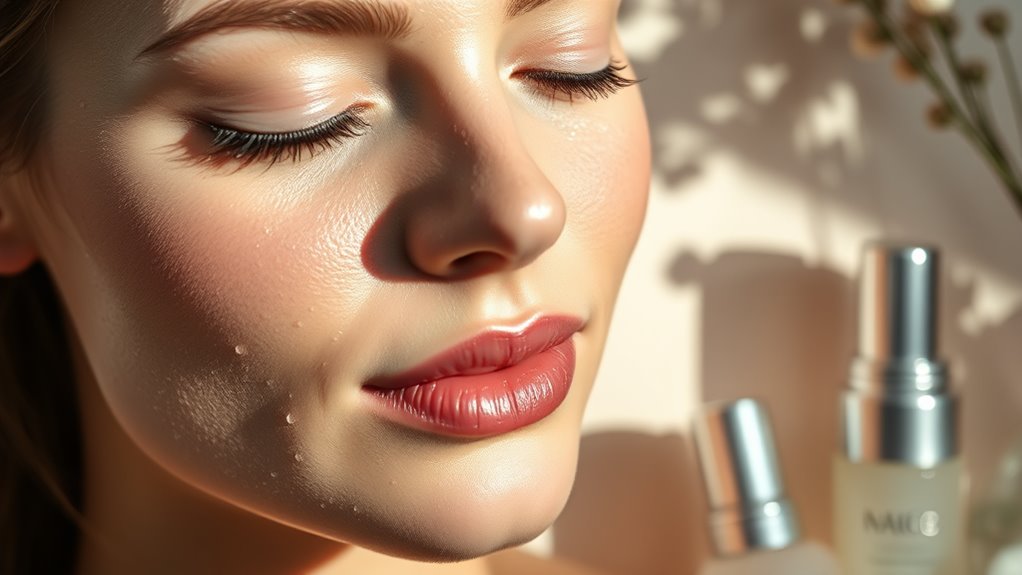How to Hydrate Your Skin From the Inside Out
Hydrating your skin from the inside out is essential for maintaining its health and vitality. Adequate water intake, alongside nutrient-rich foods, significantly impacts skin moisture levels. This approach not only plumps your skin but can also enhance its elasticity. Understanding the best practices for internal hydration can lead to a noticeable improvement in your complexion. Ready to discover how to transform your skin health effectively?
Importance of Hydration for Skin Health
Hydration plays a crucial role in maintaining skin health. To achieve optimal internal hydration for skin, you must ensure your body receives sufficient water.
Water supports the skin’s elasticity, helping to prevent dryness and flakiness. It also aids in the removal of toxins and enhances cellular regeneration, leading to a more youthful appearance.
When you’re well-hydrated, your skin appears plumper and minimizes the appearance of fine lines. Remember, skin cells rely on water to function effectively. Additionally, incorporating natural hydration methods into your routine can further elevate your skin’s moisture levels.
Prioritizing your hydration won’t only improve your skin’s appearance but also contribute to overall health, enhancing your natural glow.
Best Foods to Boost Internal Hydration
To enhance your internal hydration, incorporating specific foods into your diet can make a significant difference. Below are three foods that effectively boost your internal hydration:
-
Cucumbers: With about 95% water content, cucumbers are an excellent choice for hydration.
-
Watermelon: This fruit contains approximately 92% water, supplying hydration along with vitamins A and C.
-
Celery: Comprising about 95% water, celery also offers essential electrolytes that promote fluid balance.
In addition to these foods, maintaining adequate water intake is crucial for overall skin health and function. Including these foods in your meals helps ensure adequate internal hydration, supporting overall skin health and function.
Prioritize these hydrating options for better skin vitality.
The Role of Water Intake in Skin Moisture
Your daily water intake significantly influences your skin’s moisture levels.
Proper hydration enhances skin elasticity, helping maintain its firmness and suppleness.
Conversely, inadequate hydration can lead to noticeable signs of dehydration, such as flakiness and a dull complexion. Additionally, consistent hydration promotes a radiant complexion and supports overall skin health.
Importance of Daily Hydration
When skin doesn’t receive adequate hydration, it can lead to a range of issues, from dryness and irritation to premature aging.
Daily water intake is crucial for maintaining skin moisture. Here’s why:
-
Cell Function: Proper hydration supports cellular processes, allowing skin cells to function optimally.
-
Barrier Protection: Sufficient water intake strengthens the skin barrier, preventing moisture loss and protecting against pollutants.
-
Nutrient Transport: Water aids in transporting essential nutrients to skin cells, promoting repair and regeneration.
Impact on Skin Elasticity
Although many factors influence skin elasticity, maintaining adequate water intake is essential for keeping skin plump and youthful.
Water plays a crucial role in maintaining hydration levels in skin cells, thereby enhancing their ability to retain moisture. When you’re well-hydrated, collagen production improves, supporting skin structure and firmness.
Insufficient water intake can lead to cellular dehydration, reducing elasticity and making skin appear saggy.
Aim to drink enough water daily and incorporate hydrating foods into your diet to support overall skin moisture.
Signs of Dehydrated Skin
Dehydrated skin often presents noticeable signs that indicate a lack of moisture, primarily caused by insufficient water intake.
You may recognize dehydration by observing these key symptoms:
-
Dullness: Your skin may appear lackluster and less radiant, indicating a deficiency in moisture.
-
Tightness: If your skin feels tight or uncomfortable, it’s a sign it isn’t retaining enough water.
-
Flakiness: You might notice dry patches or flaking, which typically occurs when the skin barrier is compromised.
Hydrating Beverages You Should Include
Incorporating the right hydrating beverages into your daily routine can significantly enhance your skin’s moisture levels. Drinking water is fundamental, but don’t overlook other beneficial options. Here’s a quick guide to hydrating beverages:
| Beverage | Benefits |
|---|---|
| Water | Essential for overall hydration |
| Coconut Water | Electrolytes boost skin hydration |
| Herbal Tea | Antioxidants promote blood flow |
| Fresh Juice | Vitamins support skin health |
Make these drinks a part of your daily intake to achieve radiant, well-hydrated skin. Your skin will thank you for the extra care!
Lifestyle Habits That Promote Skin Hydration
To keep your skin adequately hydrated, adopting certain lifestyle habits is crucial. Here are three effective practices to enhance skin hydration:
-
Limit Exposure to Harsh Elements: Protect your skin from extreme weather, pollution, and UV rays, as these can weaken its moisture barrier.
-
Establish a Consistent Skincare Routine: Cleanse, exfoliate, and moisturize daily to maintain hydration levels and support skin health.
-
Prioritize Sleep: Aim for 7-9 hours of quality sleep each night, as cellular repair occurs during rest, boosting skin hydration and recovery. Additionally, drinking adequate water daily is essential, as it directly influences skin moisture levels.
Incorporating these habits helps maintain optimal skin moisture and overall health.
Supplements and Nutrients for Optimal Skin Hydration
To achieve optimal skin hydration, you need to focus on specific supplements and nutrients.
Essential fatty acids, hydrating vitamins and minerals, and collagen-boosting supplements play key roles in maintaining your skin’s moisture levels.
Incorporating these elements into your diet can significantly enhance your skin’s hydration and overall health.
Essential Fatty Acids
Essential fatty acids (EFAs), found in sources like fish oil and flaxseed, play a crucial role in maintaining skin hydration.
Incorporating EFAs into your diet can enhance your skin’s moisture barrier and overall health.
Consider these key benefits:
-
Enhanced Barrier Function: EFAs strengthen the skin’s natural barrier, helping to retain moisture and prevent dryness.
-
Anti-Inflammatory Effects: They can reduce skin irritation and promote a more even complexion.
-
Improved Elasticity: EFAs support collagen production, contributing to skin firmness and resilience.
Hydrating Vitamins and Minerals
Proper hydration for your skin goes beyond topical treatments; it’s also about what you put into your body.
Vitamins like A, C, and E are essential for skin hydration. Vitamin A regulates skin turnover, while Vitamin C aids collagen synthesis and fights free radicals. Vitamin E acts as an antioxidant, protecting skin cells.
Additionally, minerals like zinc and magnesium support skin function and repair. Drinking adequate water and consuming foods rich in these vitamins and minerals, such as fruits, vegetables, nuts, and seeds, can significantly enhance your skin’s hydration levels, leading to a healthier, more radiant complexion.
Collagen-Boosting Supplements
Many people overlook the role of collagen in skin hydration, yet it plays a crucial part in maintaining a youthful and plump complexion.
To boost your collagen levels effectively, consider incorporating the following supplements:
-
Hydrolyzed Collagen: This form is easily absorbed, helping to improve skin elasticity and moisture retention.
-
Vitamin C: It enhances collagen synthesis, improving your skin’s overall texture and firmness.
-
Biotin: Essential for skin health, it supports the production of keratin and collagen.
